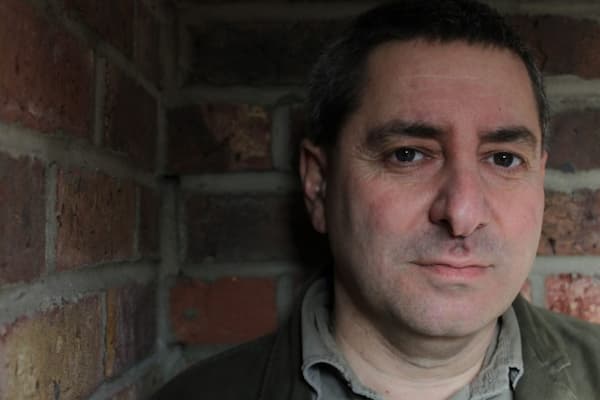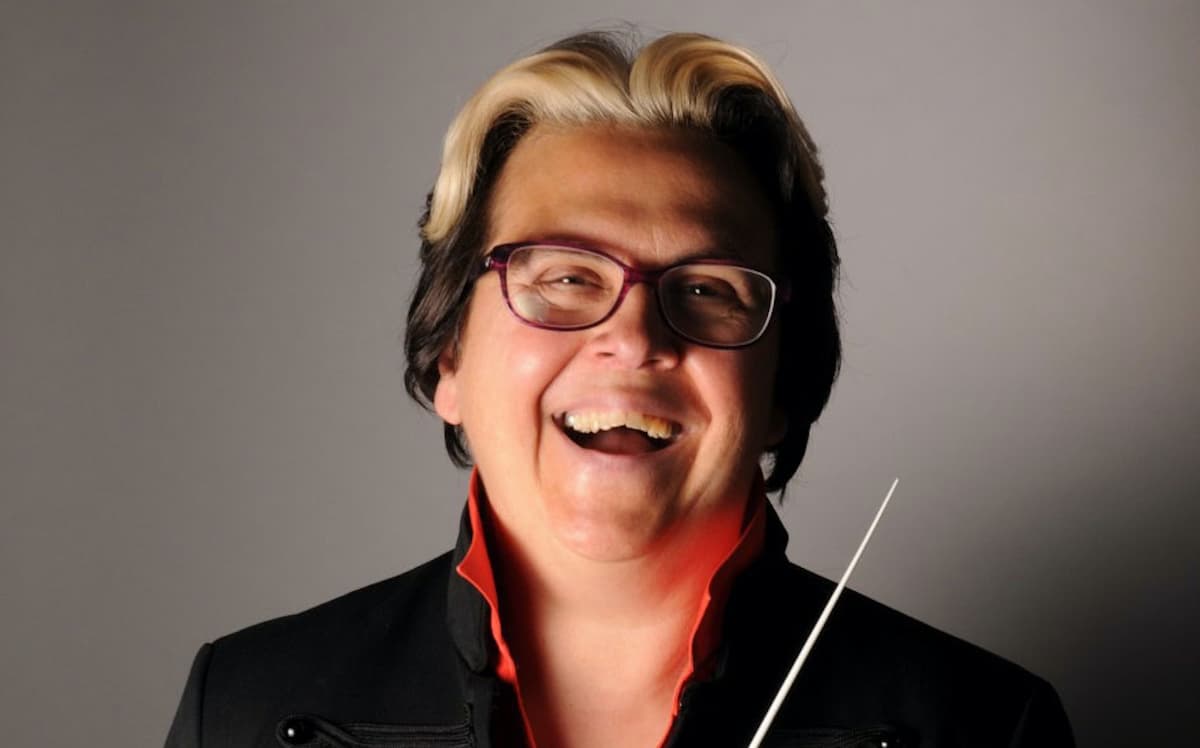There is a very exciting world premiere about to occur at the Barbican Center in London. A new work by British composer Michael Zev Gordon will be featured on March 25, 2025. Entitled A Kind of Haunting, it will feature the Britten Sinfonia, narrator, baritone, prose commentaries, and poetry.

Michael Zev Gordon
Currently Professor of Composition at the University of Birmingham, Gordon is an award-winning composer known for exploring memory and time in music. His critically acclaimed chamber opera Raising Icarus from 2022 with the Birmingham Contemporary Music Group offered a fresh perspective on the Greek myth of Daedalus and Icarus. The Guardian called it “a high-flying chamber opera that packs a punch.” Two of Gordon’s discs have been listed by The Times as one of the 100 Best Albums of the Year, and his 2024 release on NMC, The Impermanence of Things, received a 5-star review in BBC Music Magazine.
Michael Zev Gordon: Diary Pieces 2022 (Joseph Houston, piano)
Gordon took time out of his busy preparations to talk to me about his life and how this unique piece came about.
Can you tell us a little bit about your musical background? How did you become inspired to go into music and to become a composer? Where did you study, and who was the greatest inspiration behind your development?
My first musical inspiration was my grandmother! When I started to learn to play the piano at around 6 years old, every Sunday, when she came round for tea with my grandfather, she would sit with me while I practised. I have strong memories of her love for the ‘classics’ – Mozart, Beethoven, Schubert and Chopin, and little else. Somehow, this must have seeped in, as I see my music as rooted in tradition. Although I eventually became a composer, my main musical experience growing up was as an oboist, through school and into my years studying at Cambridge. There, my compositional horizon started to open. I encountered the composers Robin Holloway and Alexander Goehr. And this continued with postgraduate studies with Oliver Knussen and John Woolrich in the UK, Franco Donatoni in Italy and Louis Andriessen in Holland.
You’ve written a wide variety of music in several genres, such as solo piano, a cappella voices, and a chamber opera, winning several awards. What genres are you drawn to?
Frankly, I like writing in all genres. Each draws out a different kind of musical expression, and of course, it necessitates engaging with the forces involved in different ways. At the same time, I particularly loved the process of putting together my first opera, Raising Icarus, in 2022. Writing an extended dramatic work was extremely rewarding, not least witnessing the commitment of the singers involved in it. I hope it won’t be my last.
Michael Zev Gordon: There We Sat Down II (Elysian Singers; Sam Laughton, cond.)
What was your childhood like? When did you start learning about your father and grandparent’s story?
I lived a comfortable childhood in suburban Wimbledon. My musical inclinations were encouraged throughout. I felt cared for and protected. At the same time, I must have absorbed, if unconsciously, the silences around my father’s past life in Poland and his family’s experiences in the war. Polish was a kind of ‘secret language’ that my parents spoke when they didn’t want my sisters and me to understand what they were saying. Due to this ‘suppression’, I longed to discover what lay below that surface. I visited Poland in my early 20s and continued to go there. But it took many more years for me to learn more about my family’s past, from conversations with my aunt and from my grandmother’s memoir written in Yiddish. I was already in my 40s when it was finally translated into English.
When did you decide to translate these powerful memories into music?
I wrote a piece in 1994 for violin and piano, which I called False Relations. Near the beginning, there’s a quotation of a fragment of music from the Elizabethan Fitzwilliam Virginal Book, which subsequently is swept away by more modern sounds of my own creation. I set up the interplay between past and present this way. It was the first piece in which I began to explore, as I see it, the way memory works—how it can take us by surprise, how it may depart as soon as it appears, its persistence, its poignancy and so on. Since that time, I have returned to the subject repeatedly, quite often using a brief quotation of other music in the process. So, the groundwork for addressing those memories in my new work was set up a long time ago. And yet, for years, I shied away from the subject of the Holocaust and my family history. I knew I wanted to try to address it, but I didn’t know how. Finally, I realised my way in would be the notion of approaching the subject in terms of how memories (and silences) are inherited by the second and third generations.
What led you to portray your family story in a large work for two narrators, voice, and orchestra?
In 2004, I collaborated with the writer Eva Hoffman on a radiophonic piece called A Pebble in the Pond. It, too, had much to do with portraying memory and involved a rich layering of instrumental sounds and diverse kinds of spoken voices. I realised that such a multi-stranded approach, this time not only with spoken but also sung texts, would be right for A Kind of Haunting. The diverse, jostling elements would be a way to embody how I ‘pieced together’ the circumstances of my grandfather’s murder in a Polish forest in 1941, which forms the main narrative of the work. But I also wanted to combine very different kinds of text set in five arias – my subjective account, with more objective commentaries by the Holocaust scholar Marianne Hirsch, and interspersed with reflective poetry by poet Jacqueline Saphra. The way these are entwined I hope, succeeds in a balance that responds sensitively to such a profoundly difficult subject.
How did your process differ from your other compositions?
A Kind of Haunting echoes the fragmentary quality of A Pebble in the Pond. It’s also similar to another work, False Relations, that begins from an existing fragment – in this case, from a lullaby by the Polish-Jewish composer Mordachai Gebirtig. It emerges and is submerged many times in the piece. Additionally, A Kind of Haunting draws on my experience of shaping a 90-minute chamber opera but I’ve never shaped a piece that combines goal-directed drama and contemplative reflection quite as I have done here! I have also never put spoken and sung texts together before. I think it’s a surprisingly underused approach with great expressive potential. I hope to explore it again.
Can you tell us about the title? “A Kind of Haunting” is intriguing.
The core of A Kind of Haunting is personal and has to do with recognising how I inherited silences that suppressed my family story for so many years. Pushing something away, especially if it is traumatic – one might generalise – has consequences and can certainly be passed on from one generation to the next. So, even though we may be talking about something from the distant past, it can echo into our present, affect how we feel about ourselves, and I think, influence how we live our lives today. In fact, very near the opening, one of the narrators sets the scene with the phrase, ‘Far, far away, and long, long ago – and right now…’
How did the commission come about?
I approached Meurig Bowen, the artistic director of Britten Sinfonia, very soon after I finished my opera and broached the idea of A Kind of Haunting with him. I suggested it would be appropriate to mark the 80th anniversary of the end of World War II and quickly came up with other works for the program: Martinů’s turbulent Double Concerto for Two String Orchestras, Piano and Timpani, written on the cusp of the war, and Strauss’s lamenting Metamorphosen, which was composed during the closing months of the war. It was commissioned by the Britten Sinfonia and the Leverhulme Trust, who subsequently awarded me a Leverhulme Fellowship, which gave me a sabbatical from university teaching so I could devote my time to the piece.
What do you hope to achieve with A Kind of Haunting?
I’m rather too close to the piece right now! My hope is to engage and move the audience. In the future, when I look back, I hope I’ll have done justice to this enormous subject.
Has discovering this history about your own family changed your music-making and your goals going forward?
Certainly, without going into my family history, this piece would not have come about. The kind of intensity it carries is not like anything I’ve written before, even if the expression of memory has been a subject I have long mined. Perhaps the most important thing is that though I have written occasional pieces of music in the past that have had Jewish subjects or texts or musical sources, this piece is by far the most overtly Jewish piece I’ve written. I have long wondered if I could or should call myself a ‘British Jewish composer’ in the way that someone is termed an ‘Italian composer’. I am now quite sure that is what I am.
For more of the best in classical music, sign up for our E-Newsletter

